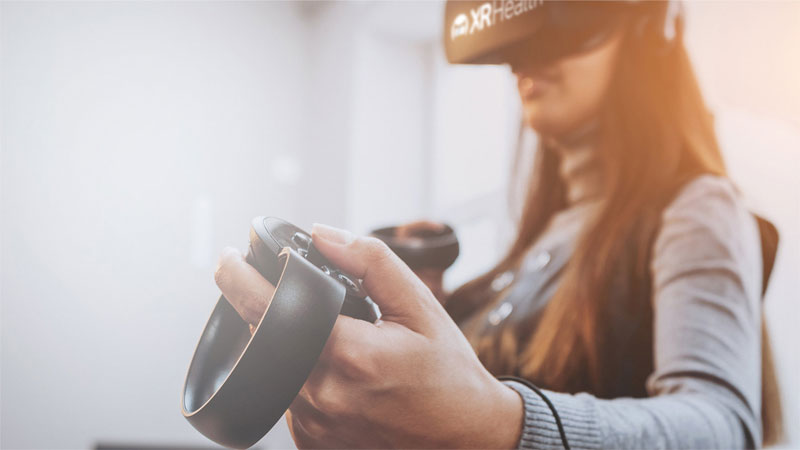 EMERGING TECH
EMERGING TECH
 EMERGING TECH
EMERGING TECH
 EMERGING TECH
EMERGING TECH
XRHealth, formerly known as VRHealth, a maker of therapeutic medical virtual reality applications, today announced the first virtual reality telehealth clinic designed to provide VR therapy to patients in their own homes.
The clinicians who will provide care through VR are currently certified in Massachusetts, Connecticut, Florida, Michigan, Washington D.C., Delaware, California, New York and North Carolina. The company plans to expand its presence into additional states in the coming months.
XRHealth’s platform uses the immersive power of VR to assist with the rehabilitation of patients by using engaging experiences designed to ease stress during treatment. Using VR, the platform transports patients into a calming environment where they receive treatment as a fun activity, thus increasing patient participation in therapeutic treatments and resulting in better health outcomes.
“XRHealth is modernizing and revolutionizing the way healthcare is operating today,” says Eran Orr, chief executive of XRHealth. “We are utilizing the most advanced forms of technology like virtual reality to provide patients with optimal care in the comfort of their own homes while providing top-notch clinicians with ongoing status of their progress. Patients can now ‘go’ to a virtual clinic without the need to leave their homes at all.”
Patients interested in VR therapy through XRHealth’s telehealth clinic can seek treatment for conditions including traumatic brain injury, stroke, stress, anxiety, chronic pain, hot flashes and other neurological disorders and injuries.
People who don’t have access to a VR headset will be shipped one once signed up and will be consulted by a VR telehealth clinician who will walk them through a treatment plan.
The telehealth clinic will use video calls and VR technology for patient communication and training with the technology. Telemetry from the VR experience will be viewable remotely by the clinical staff, who can control the entire experience remotely and see exactly what the patient is seeing. As a result, staff can adjust settings and treatment in real-time.
After an initial training session, the patient can use the headset independently, while data from its use is stored and analyzed in real time so the clinical staff can monitor patient status.
Data collection, communication and treatment information will all remain in compliance with HIPAA privacy rules.
The use of VR for brain injuries and neurological issues has been on the rise across the industry. Over the past few years, this includes a free VR game that helps gather data on dementia from Glitchers Ltd. and an app from SyncThink Inc. that can diagnose traumatic brain injury. South Korean hospitals have also been using VR to help treat depression and suicidal tendencies. And MindMaze, a neurorehabilitation company that uses VR and neuroscience, is also developing a VR game to assist with stroke recovery.
XRHealth believes that using VR as a revolutionary technology for neurological therapy will improve care quality and increase access to care overall. By using VR and remote technology, it will also reduce the need for in-office visits – especially important for patients who cannot travel well – while still providing a high quality of care and increased communication about treatment between patients and doctors.
The first VR telehealth clinics operated by XRHealth will open on March 1 and patients can join by submitting an enrollment request on the company website.
Support our mission to keep content open and free by engaging with theCUBE community. Join theCUBE’s Alumni Trust Network, where technology leaders connect, share intelligence and create opportunities.
Founded by tech visionaries John Furrier and Dave Vellante, SiliconANGLE Media has built a dynamic ecosystem of industry-leading digital media brands that reach 15+ million elite tech professionals. Our new proprietary theCUBE AI Video Cloud is breaking ground in audience interaction, leveraging theCUBEai.com neural network to help technology companies make data-driven decisions and stay at the forefront of industry conversations.